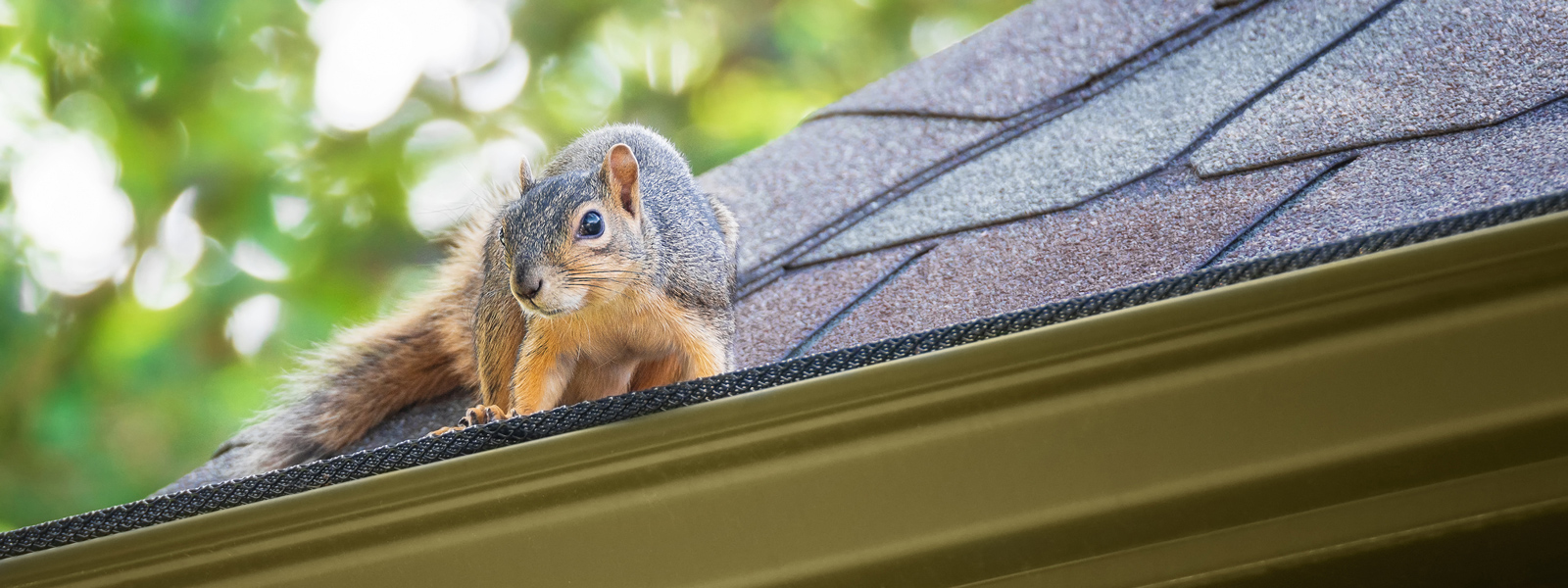Humane Rodent and Dead Animal Removal: Local Experts Near You.

Humane Rodent and Dead Animal Removal: Local Experts Near You.
Quickly and discreetly remove rodents and dead animals from your home. Find a trusted professional near you.
If you are having a problem with a wild animal, please select your city/town in Mississippi from the map or list above. This Mississippi animal control directory lists the phone numbers of professional wildlife removal experts throughout Mississippi. These nuisance wildlife control operators deal with conflicts between people and wildlife such as squirrels living in an attic, or raccoons digging through the trash can. Call the licensed and insured professional listed here, and get the problem taken care of once and for all.
There are many Mississippi pest control companies, but most of them treat for insect problems, and have little experience dealing with wild animals. Our specially trained technicians have the specific knowledge and equipment necessary for Mississippi wildlife management. We are not extermination companies, we are professional Mississippi trappers of wildlife. We are humane, and do a complete job - everything from animal damage repairs to biohazard waste cleanup.
Our Mississippi animal control experts can handle many wildlife issues. Examples include Mississippi bat control and removal. It takes an experienced pro to safely and legally remove a colony of bats. The same goes for bird control, such as roosting pigeons. We know all the species of Mississippi snakes, and can safely remove them. We most commonly deal with animals in the home, such as rats or mice in the attic, or raccoons in the chimney. Select your area on the map above, and find a professional in your home town.
There are many Mississippi pest control companies, but most of them treat for insect problems, and have little experience dealing with wild animals. Our specially trained technicians have the specific knowledge and equipment necessary for Mississippi wildlife management. We are not extermination companies, we are professional Mississippi trappers of wildlife. We are humane, and do a complete job - everything from animal damage repairs to biohazard waste cleanup.
Our Mississippi animal control experts can handle many wildlife issues. Examples include Mississippi bat control and removal. It takes an experienced pro to safely and legally remove a colony of bats. The same goes for bird control, such as roosting pigeons. We know all the species of Mississippi snakes, and can safely remove them. We most commonly deal with animals in the home, such as rats or mice in the attic, or raccoons in the chimney. Select your area on the map above, and find a professional in your home town.
Mississippi info: A southern state with plenty of snakes, and even alligators and nutria. But squirrels and raccoons are more common problem critters.
If you need assistance with a domestic animal, such as a dog or a cat, you need to call your local Mississippi county animal services or SPCA for assistance. They can help you out with issues such as stray dogs, stray cats, dangerous animal complaints, pet adoption, bite reports, deceased pets, lost pets, and other issues. We have those numbers listed here for your convenience. If your city is not on our map, consult your local yellow pages or search for 'Animal Control' or 'SPCA' in your town.
If you need assistance with a domestic animal, such as a dog or a cat, you need to call your local Mississippi county animal services or SPCA for assistance. They can help you out with issues such as stray dogs, stray cats, dangerous animal complaints, pet adoption, bite reports, deceased pets, lost pets, and other issues. We have those numbers listed here for your convenience. If your city is not on our map, consult your local yellow pages or search for 'Animal Control' or 'SPCA' in your town.
Jackson, MS
35°F to 92°F
35°F to 92°F
- European honeybee
- Largemouth bass
- American alligator
- Northern mockingbird
- White-tailed deer
Mississippi is named for the Mississippi River which runs along the state's western border, and even though the river is a namesake, the state does have other large rivers coursing through it. Most of Mississippi is flat, hilly land with heavy forestation, though a portion of the state was cleared decades ago for the booming cotton industry. Summers in the region are long and hot, and winter temperatures are usually well above freezing, though the state has seen its fair share of heavy snowfall. Because it does sit on the coast of the nation, Mississippi feels the occasional wrath of hurricanes coming up the Gulf of Mexico.
Heavily wooded areas and a rolling landscape of hills make Mississippi a perfect place for animals looking for shelter and sustenance from trees. The state has both large and small creatures making the landscape home, including black bears and mountain lions. Bobcats and coyotes make up the middle-level predators, and are followed by foxes, weasels and skunks. Because of the low elevation and extremely warm temperatures, white-tailed deer tend to be the largest grazers in Mississippi.
The warm weather also makes this state a favorite of bats, rats and mice. There are numerous subspecies of rodents, some living near people and some enjoying the privacy of the deep woods.
With most residential areas sitting near trees in Mississippi, nuisance animals are a common occurrence. In addition to the above critters, the region see a number of raccoons, opossums, armadillos, nutria, moles, voles, shrews, river otters, squirrels, and muskrats.
As in many of the consistently warm states, Mississippi has ample wetlands which encourage the habitation of aquatic and semi-aquatic animals. Alligators populate most of the state, and the Mississippi River, along with the other river systems, is prime locations for these large reptiles. Not only does the state have a large number of the gigantic lizards, it also has a large number of sizeable fish for the alligators to prey on.
Mississippi is the primary aquaculture location for catfish farming, supplying the majority of the United States with the catfish consumed annually. ‘Canoodling' is a term used by natives of Mississippi to describe the method of catching catfish—by using their finger in the water wiggled as bait.
Heavily wooded areas and a rolling landscape of hills make Mississippi a perfect place for animals looking for shelter and sustenance from trees. The state has both large and small creatures making the landscape home, including black bears and mountain lions. Bobcats and coyotes make up the middle-level predators, and are followed by foxes, weasels and skunks. Because of the low elevation and extremely warm temperatures, white-tailed deer tend to be the largest grazers in Mississippi.
The warm weather also makes this state a favorite of bats, rats and mice. There are numerous subspecies of rodents, some living near people and some enjoying the privacy of the deep woods.
With most residential areas sitting near trees in Mississippi, nuisance animals are a common occurrence. In addition to the above critters, the region see a number of raccoons, opossums, armadillos, nutria, moles, voles, shrews, river otters, squirrels, and muskrats.
As in many of the consistently warm states, Mississippi has ample wetlands which encourage the habitation of aquatic and semi-aquatic animals. Alligators populate most of the state, and the Mississippi River, along with the other river systems, is prime locations for these large reptiles. Not only does the state have a large number of the gigantic lizards, it also has a large number of sizeable fish for the alligators to prey on.
Mississippi is the primary aquaculture location for catfish farming, supplying the majority of the United States with the catfish consumed annually. ‘Canoodling' is a term used by natives of Mississippi to describe the method of catching catfish—by using their finger in the water wiggled as bait.
Mississippi Wildlife Invading Homes: A Growing Concern
Mississippi's landscape and climate make it an ideal habitat for a wide variety of wildlife. Unfortunately, this can also lead to problems for homeowners as animals seek shelter and food in residential areas.
As the human population continues to expand, encounters with wildlife are becoming increasingly common across the United States. One of the most frustrating and sometimes dangerous issues for homeowners is when animals find their way inside.
One of the most common culprits is the raccoon. These intelligent and adaptable creatures are skilled at finding ways into homes through small openings in roofs, chimneys, or vents. Once inside, they can cause damage to insulation, wiring, and furniture.
The specific types of wildlife that may invade homes vary depending on the region, but some common culprits in Mississippi include:
To prevent wildlife from entering your home, consider the following:
If you have a wildlife infestation, it's important to contact a professional wildlife removal service. They have the experience and equipment to safely and humanely remove animals from your home and prevent future infestations.
By taking these steps, you can help protect your home and property from wildlife damage while also ensuring the safety of both humans and animals
As the human population continues to expand, encounters with wildlife are becoming increasingly common across the United States. One of the most frustrating and sometimes dangerous issues for homeowners is when animals find their way inside.
One of the most common culprits is the raccoon. These intelligent and adaptable creatures are skilled at finding ways into homes through small openings in roofs, chimneys, or vents. Once inside, they can cause damage to insulation, wiring, and furniture.
The specific types of wildlife that may invade homes vary depending on the region, but some common culprits in Mississippi include:
- Opossums: These nocturnal marsupials can squeeze through surprisingly small holes.
- Squirrels: Both ground squirrels and tree squirrels can cause damage to homes and gardens.
- Bats: Bats may enter through small gaps in the roof or walls, potentially carrying diseases.
- Rodents: Rats and mice can squeeze through tiny openings and contaminate food.
To prevent wildlife from entering your home, consider the following:
- Seal up entry points: Inspect your home for any gaps or cracks in the exterior and seal them with caulk or metal flashing.
- Install screens: Use screens on windows and vents to deter flying animals.
- Remove attractants: Keep garbage, pet food, and bird feeders away from your home to avoid attracting wildlife.
If you have a wildlife infestation, it's important to contact a professional wildlife removal service. They have the experience and equipment to safely and humanely remove animals from your home and prevent future infestations.
By taking these steps, you can help protect your home and property from wildlife damage while also ensuring the safety of both humans and animals
